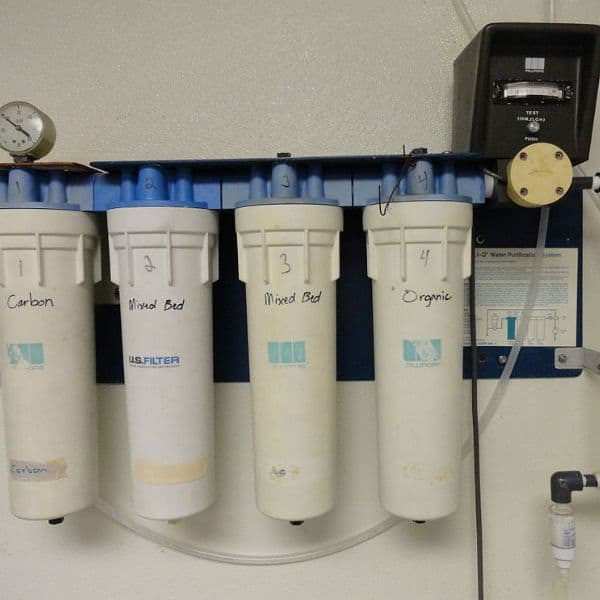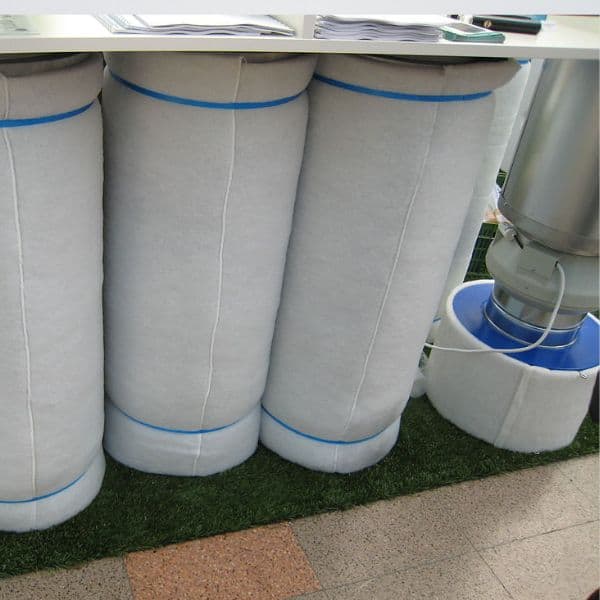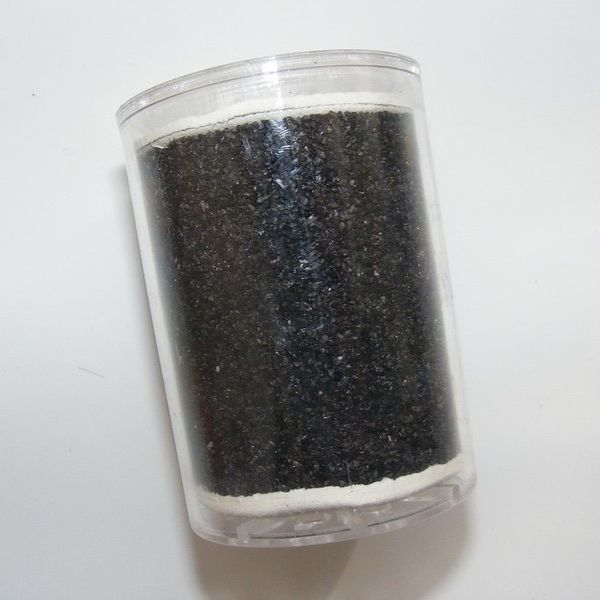What Are Carbon Filters?
Carbon filters are a crucial component in many air and water filtration systems. This type of filter works by using activated carbon, specially treated to remove impurities and contaminants from the air or water it comes in contact with. The process of carbon filtration involves a series of chemical reactions that bind impurities to the surface of the carbon.
Activated carbon is made from organic materials such as coconut shells, wood, or coal. These materials undergo an activation process where they are heated at high temperatures with steam or chemicals to create tiny pores that increase their surface area. The increased surface area allows more impurities to be trapped by the activated carbon filter.

How Does a Carbon Filter Work?
When air or water passes through a carbon filter, the pollutants become trapped in the activated carbon’s pores. This process works because each particle or molecule in the air or water has a slightly different size and shape. As they pass through the pores, some get stuck while others continue. The smaller molecules and particles are especially prone to get trapped since they have more surface area relative to their mass.
Can Carbon Filters Remove Iron in Water?
Carbon filters are effective at removing iron from water. The activated carbon in these filters works by absorbing contaminants in the water as it passes through them. Activated carbon has the unique property of attracting impurities like iron, chlorine, and other organic compounds to its surface, reducing their concentration in your drinking water.
However, it’s important to note that not all carbon filters are designed to remove iron from the water effectively. Therefore, when choosing a filter for this purpose, it’s essential to choose one specifically designed for removing iron contaminants such as a reverse osmosis system or an iron filter. Here is a list of the best iron filters for well water that you might be interested in checking out.

What Do Activated Carbon Filters Remove?
Activated carbon block filters effectively remove the following contaminants:
Chlorine
Activated carbon filters are an effective solution for removing chlorine from drinking water. These carbon filters work by using activated charcoal as a filtration medium. Activated charcoal has millions of tiny pores and crevices that absorb impurities such as chlorine, pesticides, and other contaminants from the water.
Heavy Metals
Activated carbon water filters are one of the most effective methods for removing heavy metals from water. Heavy metals such as lead, mercury, and arsenic are often present in groundwater sources and can seriously threaten human health. Activated carbon filters trap these heavy metals in their tiny pores, preventing them from passing through and contaminating drinking water.
Pesticides and Herbicides
Activated carbon filters effectively remove pollutants, including pesticides and herbicides, that may be present in tap water. Activated carbon is a highly porous material that traps contaminants as water flows through it. This makes it an ideal filter media for removing organic chemicals.
Volatile Organic Compounds
VOCs are chemicals in household items such as cleaning products, paints, and pesticides. They can also be present in industrial waste and pollution. Activated carbon filters work by using adsorption to trap contaminants in their pores.
The activated carbon has a large surface area and can attract VOC molecules through electrostatic forces. Once these compounds are trapped in the filter, they cannot escape the water supply. This process ensures that the water from your faucet is free from harmful chemicals that could negatively impact your health.

Types of Carbon Filters
Granular-activated carbon (GAC) filters
Granular-activated carbon (GAC) filter is a type of carbon filter widely used to treat drinking water. GAC filters effectively remove impurities, odors, and tastes from water.
These filters contain activated carbon from organic materials such as coconut shells, wood, or coal heated at high temperatures without oxygen to create a porous structure. This structure provides an ideal surface area for the adsorption of contaminants.
Granular-activated carbon filters allow water to pass through their porous structure, where the activated carbon captures and holds onto impurities through adsorption. Adsorption is the process by which molecules adhere to a solid surface without undergoing any chemical reaction. The active carbon filters remove impurities such as chlorine, pesticides, herbicides, and volatile organic compounds (VOCs) from water.
Carbon block filters
Carbon block filter is another type that has become very popular in recent years due to its effectiveness in removing impurities from water. The filter is made from activated carbon, which has been compressed into a solid block. This unique design allows the filter to remove harmful contaminants such as chlorine, volatile organic compounds, and sediment.
One of the benefits of using a carbon block filter is that it can improve the taste and odor of drinking water. Carbon blocks are great at absorbing chemicals contributing to foul smells and tastes in tap water. Additionally, they can also reduce the level of lead, cysts, and other microbial contaminants that may be present in your tap water.

How Often Should You Replace a Carbon Filter?
In general, replacing your carbon filter every 6-12 months is recommended. This timeframe can vary depending on how much you use your filtration system and the level of pollutants in your home. If you have pets or live in an area with high pollution levels, replacing the filter more frequently may be necessary. Additionally, notice a decrease in air quality or a musty odor from your filtration system. This may indicate that it’s time to change the filter.
Conclusion
A carbon filter can be an effective way to remove iron from water. However, not all carbon filters are designed to remove iron from the water effectively. Therefore, installing an iron filter is important that specifically states on the packaging that it’s designed to remove iron from water. Do adequate research beforehand to ensure that the filter you choose meets your needs.

